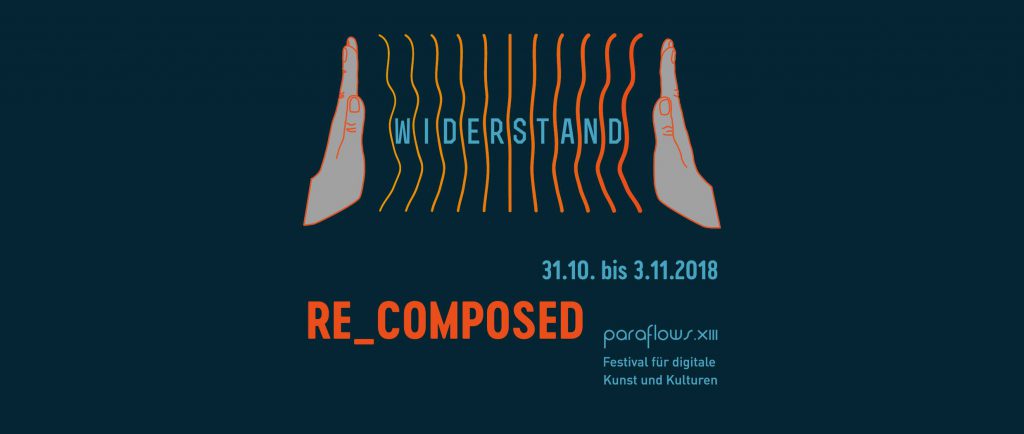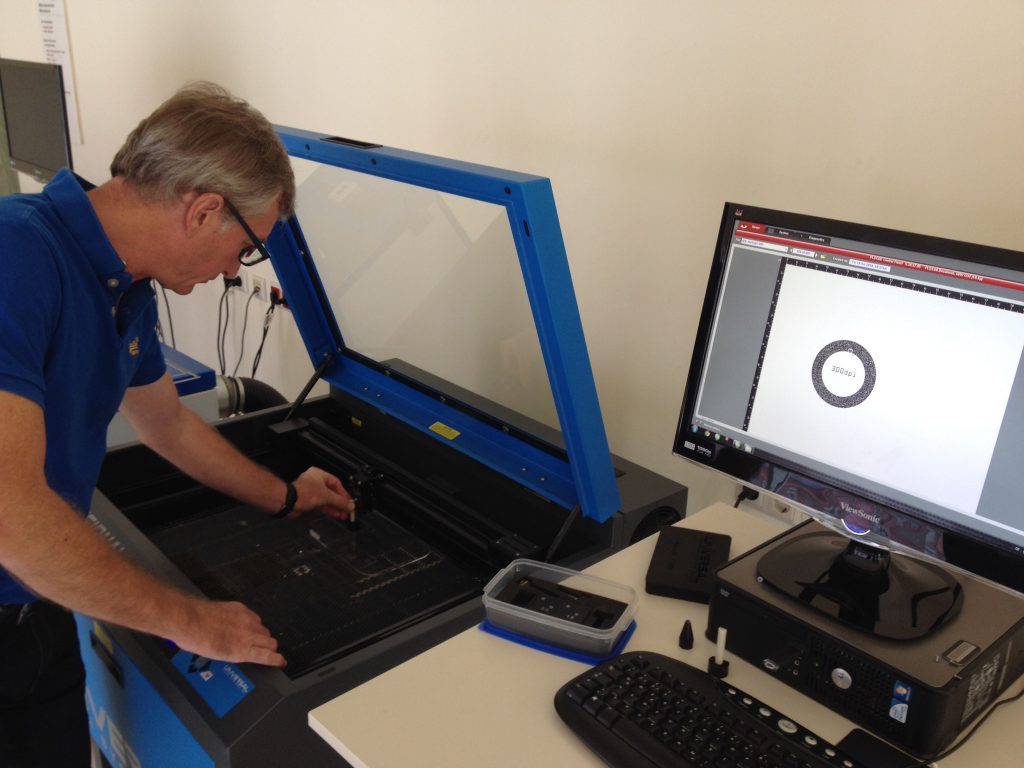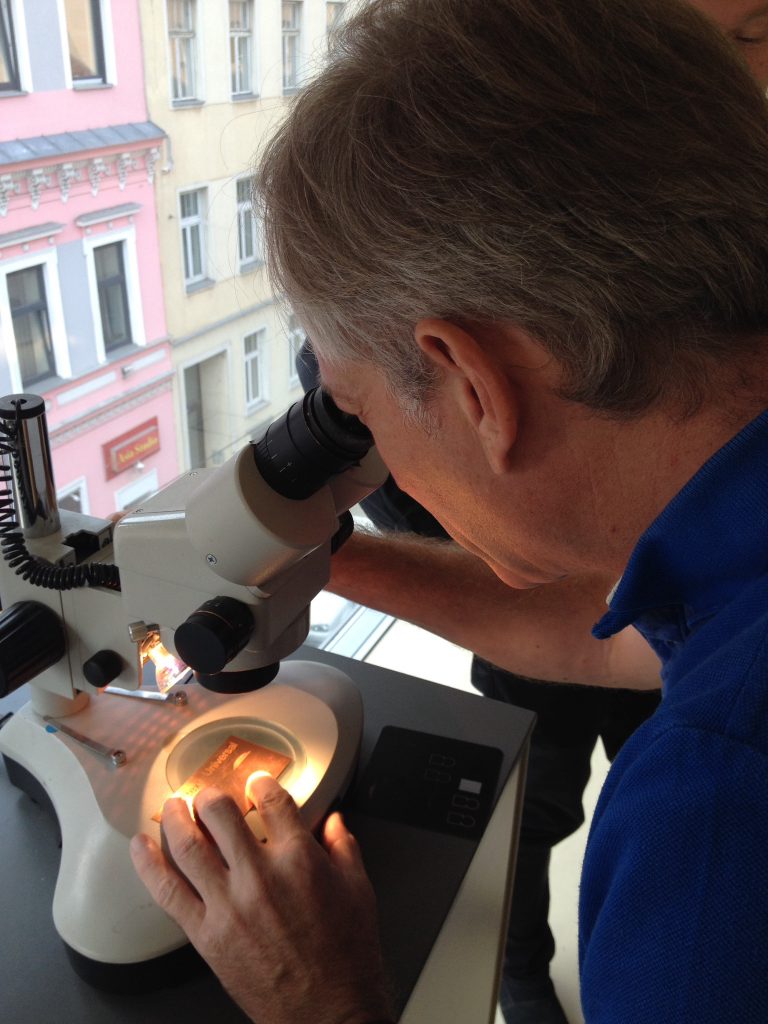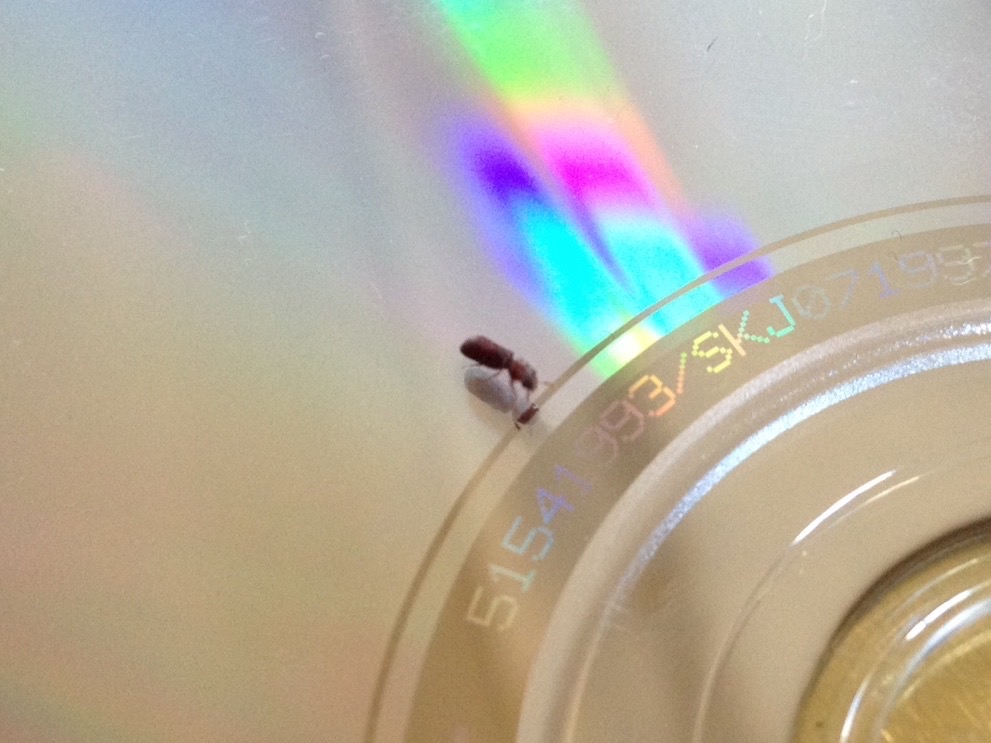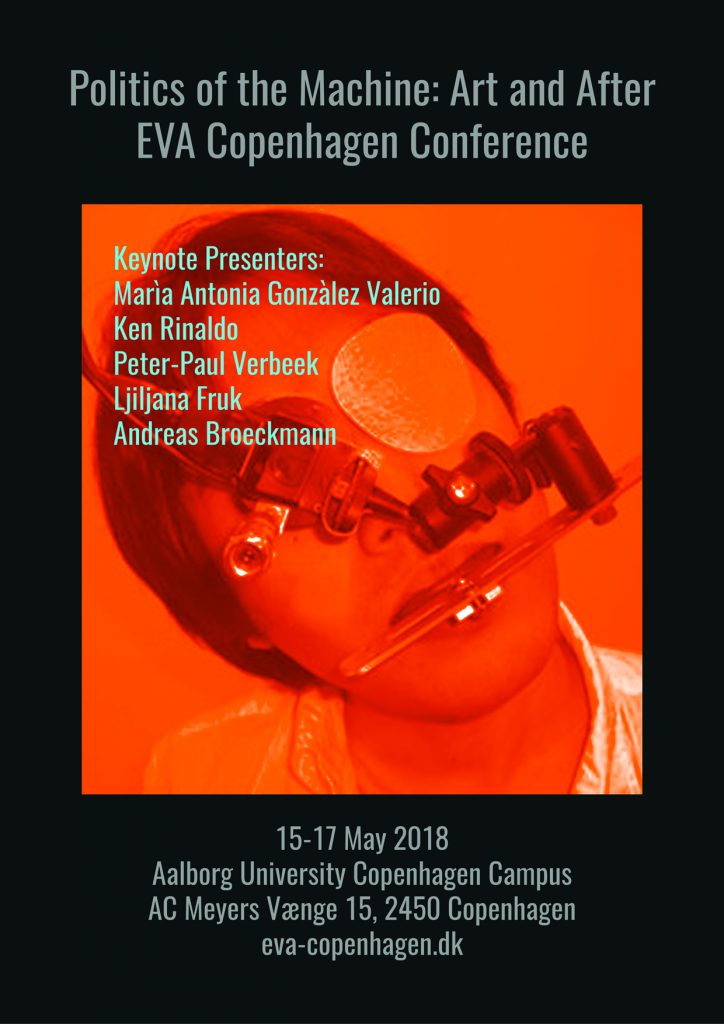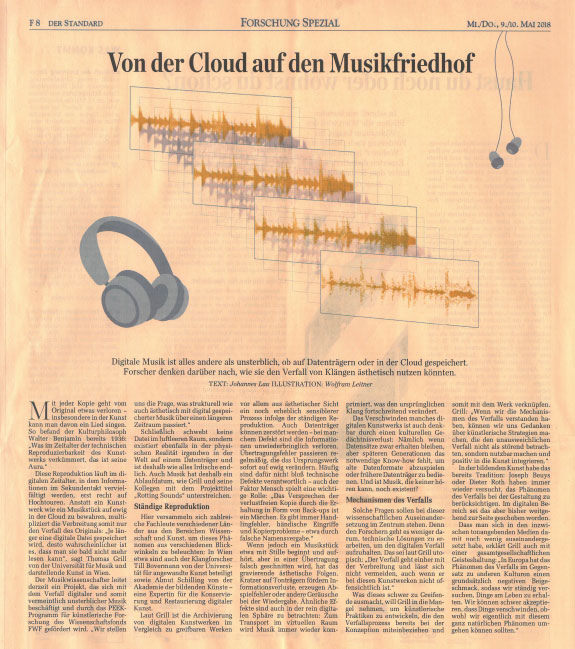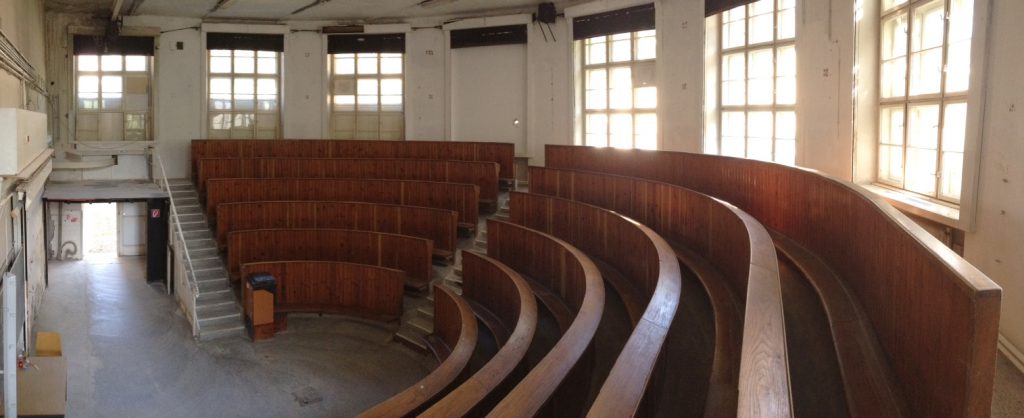Posts By Thomas Grill
Electroacoustic composition “residuals” at re_composed festival, October 31
At this year’s edition of the re_composed series, part of paraflows XIII, festival for digital art and cultures, i will present a new piece of acousmatic music, titled residuals.
The piece is re-composed solely of compression artifacts, originating from my piece Points of View, as performed at the same re_composed festival five years earlier. The new piece has the same 24 minute duration as the prior performance, and also the same 4-channel layout.
October 31 thru November 3, 2018
weisses haus, Hegelgasse 14, 1010 Wien, Austria
1-bit audio laser engraving
Today, we have gained new knowledge about laser engraving thanks to the great guys at Universal Laser Systems Vienna.
The laser engraving expert convinced us that a target resolution of 1000 dpi is not easily attainable due to restrictions of laser focus, positioning accuracy and, above all, material constraints.
Nevertheless, we will research further in this direction, since laser engraving allows the application of visual representations of audio on various interesting materials.
Call for participation: Workshop “sound-material-time”, November 8+9, Anton Bruckner University Linz
We will host the workshop “sound-material-time”, taking place November 8+9, 2018, at the Anton Bruckner Private University, Linz, Austria.
We are specifically targeting practitioners and theorists in music / sound art explicitly working with long time spans / obsolescence phenomena / explicit degradation.
In principle also other forms of time-based art are welcome if they are topical. Our focus is on digital media, but deviations are possible.
Since the workshop is within our artistic research project “rotting sounds”, its intentions should well resonate with your topic.
We would like to stress the fact that this is not a scientific workshop, but rather a gathering where we would like to discuss (personal) artistic practices and their contexts.
Central concepts are the following:
- Interaction of material (physical, analog, digital) and time
- What is “digital”? Where do physical and logical data interface?
- Identifying and working with degradation processes/artifacts in the (digital) medium
- What is the aesthetic impact of such processes?
- Aspects of presentation, preservation, distribution of artworks depending on degradation
Each of the participants should bring along material things of their work practice which could be instruments, data carriers, objects of interests and passion. You should also give a short introduction about this practice.
Our intention is to keep the number of participants low (select 5-8 or so) and to zoom in on each practice individually.
All three core members of the research project will be present (Thomas Grill, Till Bovermann and Almut Schilling).
Within the group, we will develop questions and experiments on deterioration specifically for each participant.
We will also ask the participants prior to the workshop about specific topics they would like to have addressed.
The work schedule is 10am-1pm and 2pm to 5pm on both days, tentatively.
There will be a possibility for public presentation (concert format) in the evening of November 9.
The deadline for applications is Sunday, October 21, 2018.
Participation is free of charge.
Please direct your applications to info@rottingsounds.org, including
- a CV
- a few relevant examples of your work (artistic or theoretical)
- a short motivation text about what you suggest to bring in and what you expect
Please distribute the call!
Rhyzopertha dominica feeding on digital audio
We are commencing experiments with organisms potentially feeding on digital audio carriers or circuits, therewith changing contents or functionality. Today we have observed and recorded several representatives of Rhyzopertha dominica. Usually they would feed on various cereal grains, but if those are not available, they instead digest also polymers and other technologically interesting substances. We are looking forward to having interesting sonic encounters with them.
First publication “Embracing the temporal deterioration of digital audio – A manifesto”
We are happy to announce that our paper “Embracing the temporal deterioration of digital audio – A manifesto” has been accepted for publication in the upcoming proceedings of the Politics of the Machines conference on the British Computer Society’s eWic platform.
This paper presents the fundaments and challenges of the Rotting sounds project and expresses the most important theses in the form of a manifesto.
Most of today’s media output, be it audio or video, is produced and stored in the digital domain. Although digital data are adorned by the myth of lossless transmission and migration, everyday experience does prove the existence of degradation and, ultimately, data loss in various forms. This pertains to the physical nature of storage media and playback devices as well as to media formats and software in the context of their technological infrastructure.
We have recently launched the project of artistic research ‘Rotting sounds – Embracing the temporal deterioration of digital audio’, funded by the Austrian Science Fund (FWF). Since degradation cannot be avoided by principle, we therein propose alternative perspectives on the nature and the implications of deterioration in theory and artistic practice, specifically for the domain of digital audio.
This manifesto shall represent an introduction to our endeavour, as much as it shall form a guideline for us carrying out the research.
Talk at ars electronica symposium, September 9
Under the title “Letting loose, embracing the loss”, I will talk about implications of audio deterioration at the Ars Electronica symposium “… under control of music, music under control of …; composing (in) digital worlds”, part of the Sonic Saturday at Anton-Bruckner Private University, Linz.
Most of today’s media output, also music, is produced and stored in the digital domain. Although digital data are adorned by the myth of lossless transmission and migration, everyday experience does prove the existence of degradation and, ultimately, data loss in various forms. This pertains to the physical nature of storage media and playback devices as well as to media formats and software in the context of their technological infrastructure.
Usually, this loss of control over the musical material is counteracted in the personal or societal domain using various kinds of archival strategies.
In the running project of artistic research “rotting sounds”, however, we rely on the hypothesis that by gaining pertinent knowledge and developing adequate means to work with digital degradation in a constructive fashion, its inevitability can be turned from being a source of irritation into a potential for aesthetic choice.
September 8, 2018, 4pm-7pm
Anton Bruckner Private University
Studiobühne
Hagenstraße 57, 4040 Linz, Austria
Presenting a manifesto at the “politics of the machine” conference, Copenhagen, May 16
I will present some observations and implications on our topic of the degradation of digital audio. Consequentially, i will try to formulate a number of bold claims summing up to the form of a manifesto.
Politics of the Machine conference
Aalborg University Copenhagen
A. C. Meyers Vænge 15, 2450 Copenhagen, Denmark
May 16 2018, “sonic machines” session at 3:45pm
Article in Austrian daily newspaper Der Standard, May 10
An interview by Johannes Lau with Thomas Grill on the rotting sounds project has been featured in an article of the Austrian daily newspaper Der Standard.
In Europa hat das Phänomen des Verfalls im Gegensatz zu anderen Kulturen einen grundsätzlich negativen Beigeschmack, sodass wir ständig versuchen, Dinge am Leben zu erhalten. Wir können schwer akzeptieren, dass Dinge verschwinden, obwohl wir eigentlich mit diesem ganz natürlichen Phänomen umgehen können sollten.
Exploratorium at the MDW campus
Today, we have received the keys to the old abandoned anatomy auditorium located on the campus of the University of Music and Performing Arts Vienna (MDW). This is the last unrenovated part of the whole campus and it will function as a lab and exhibition space for experiments over the course of the whole project. Many thanks to the rector of the MDW for her friendly consent.
May 1, the project has officially started!
Today, May 1st aka “International Workers’ Day” is a national public holiday in Austria. Hence, i have launched the project with my family by hiking down the Kahlenberg and flying kites on the Danube Island.
